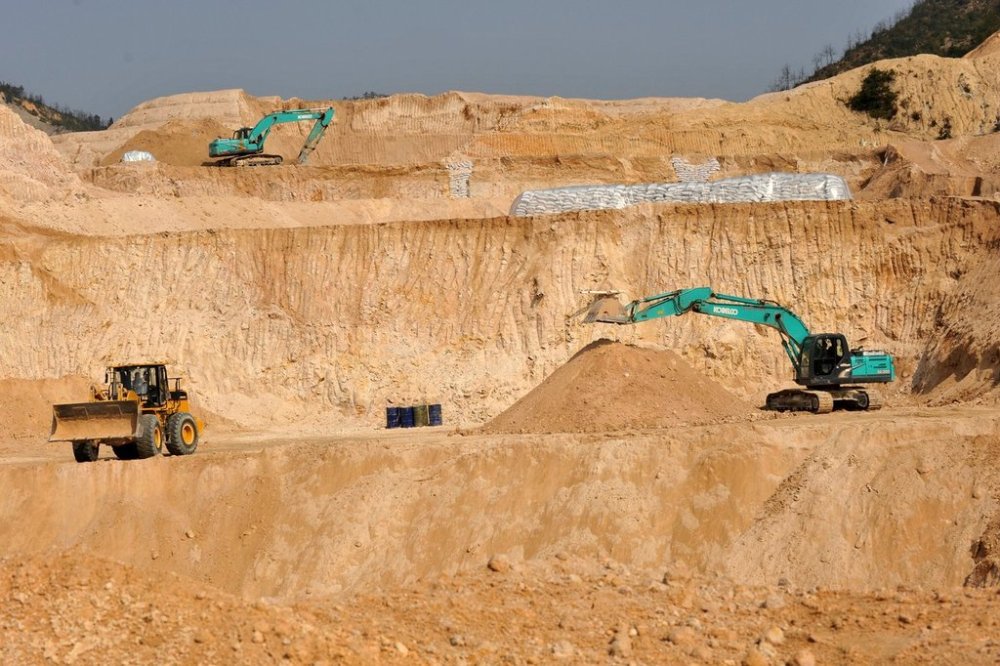World
China Tightens Export Controls on Rare Earths Ahead of Key Meeting

China has announced new restrictions on the export of rare earth elements and related technologies, a move that intensifies its control over these vital resources. The new regulations, unveiled on October 5, 2023, require foreign companies to obtain special approval to export products containing even trace amounts of rare earths sourced from China. This decision comes in advance of a crucial meeting later this month between U.S. President Donald Trump and Chinese President Xi Jinping at the Asia-Pacific Economic Cooperation (APEC) forum in South Korea.
The Ministry of Commerce stated that the new permitting requirements will also apply to technologies involved in the mining, smelting, recycling, and magnet-making processes related to rare earths. China dominates the global rare earth market, accounting for nearly 70% of mining and approximately 90% of processing of these critical minerals. The significance of these elements extends to a wide range of products, including jet engines, radar systems, and consumer electronics like smartphones and laptops.
Access to rare earths has become a contentious issue amid ongoing trade negotiations between Washington and Beijing. As President Trump has implemented tariffs on numerous imports from China, Beijing has responded by tightening its controls over these strategically important minerals, raising concerns about potential shortages for manufacturers in the United States and beyond.
Details on how China plans to enforce these new export controls internationally remain unclear. The Commerce Ministry noted that the measures aim to “better safeguard national security” and prevent the use of rare earths in “sensitive fields such as the military.” It also highlighted that certain unnamed “overseas bodies and individuals” had previously transferred rare earth elements and technologies for military applications, which purportedly caused “significant damage” to China’s national security.
The timing of these new restrictions, just weeks before the impending meeting of the two leaders, suggests that rare earths will continue to play a significant role in the negotiations. George Chen, a partner at The Asia Group, commented that while both sides are seeking stability, many challenges will arise before a final agreement can be reached. “Those noises are all negotiation tactics,” he added.
Previously, in April 2023, China had already imposed export curbs on seven rare earth elements shortly after the United States announced steep tariffs on various trading partners, including China. Although uncertainties regarding supply persist, China had approved some permits for rare earth exports in June and indicated that it was expediting its approval processes.
As the situation evolves, the impact of these export controls on the global supply chain and international relations will be closely monitored. The developments highlight the strategic importance of rare earth elements in the global economy and the ongoing complexities of U.S.-China trade relations.
-

 Science2 months ago
Science2 months agoToyoake City Proposes Daily Two-Hour Smartphone Use Limit
-

 Health2 months ago
Health2 months agoB.C. Review Reveals Urgent Need for Rare-Disease Drug Reforms
-

 Top Stories2 months ago
Top Stories2 months agoPedestrian Fatally Injured in Esquimalt Collision on August 14
-

 Technology2 months ago
Technology2 months agoDark Adventure Game “Bye Sweet Carole” Set for October Release
-

 World2 months ago
World2 months agoJimmy Lai’s Defense Challenges Charges Under National Security Law
-

 Technology2 months ago
Technology2 months agoKonami Revives Iconic Metal Gear Solid Delta Ahead of Release
-

 Technology2 months ago
Technology2 months agoSnapmaker U1 Color 3D Printer Redefines Speed and Sustainability
-

 Technology2 months ago
Technology2 months agoAION Folding Knife: Redefining EDC Design with Premium Materials
-

 Technology2 months ago
Technology2 months agoSolve Today’s Wordle Challenge: Hints and Answer for August 19
-

 Business2 months ago
Business2 months agoGordon Murray Automotive Unveils S1 LM and Le Mans GTR at Monterey
-

 Lifestyle2 months ago
Lifestyle2 months agoVictoria’s Pop-Up Shop Shines Light on B.C.’s Wolf Cull
-

 Technology2 months ago
Technology2 months agoApple Expands Self-Service Repair Program to Canada









